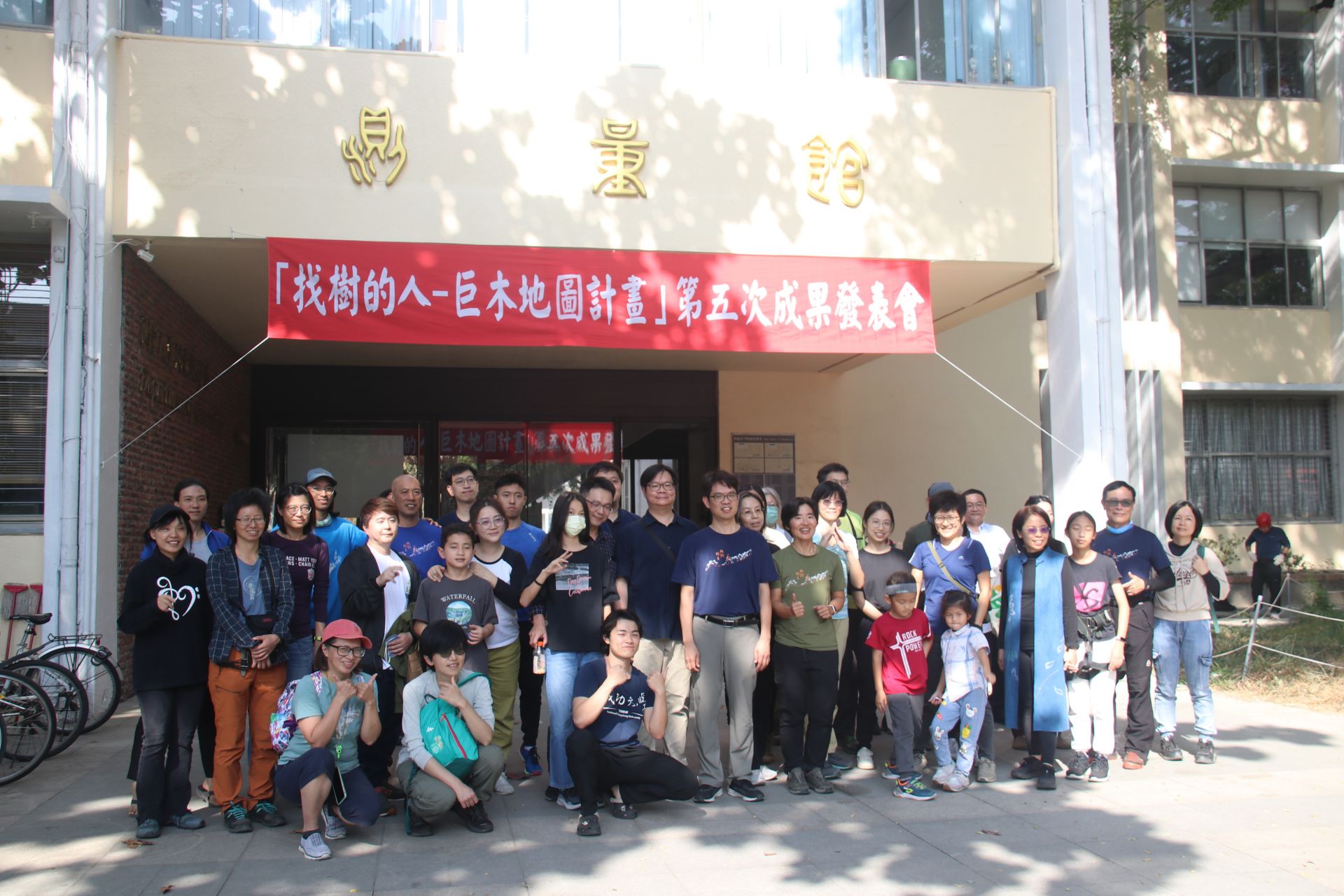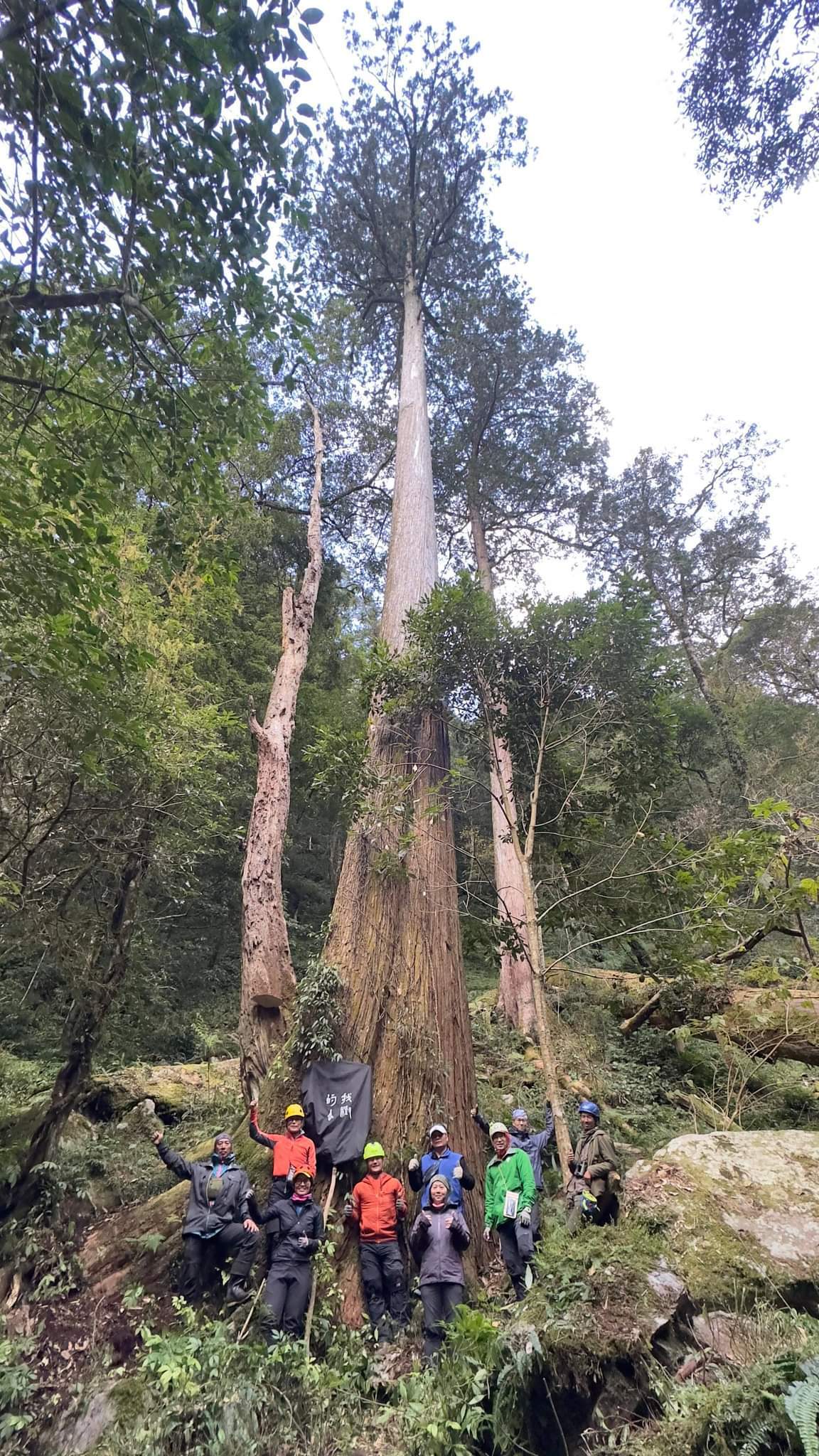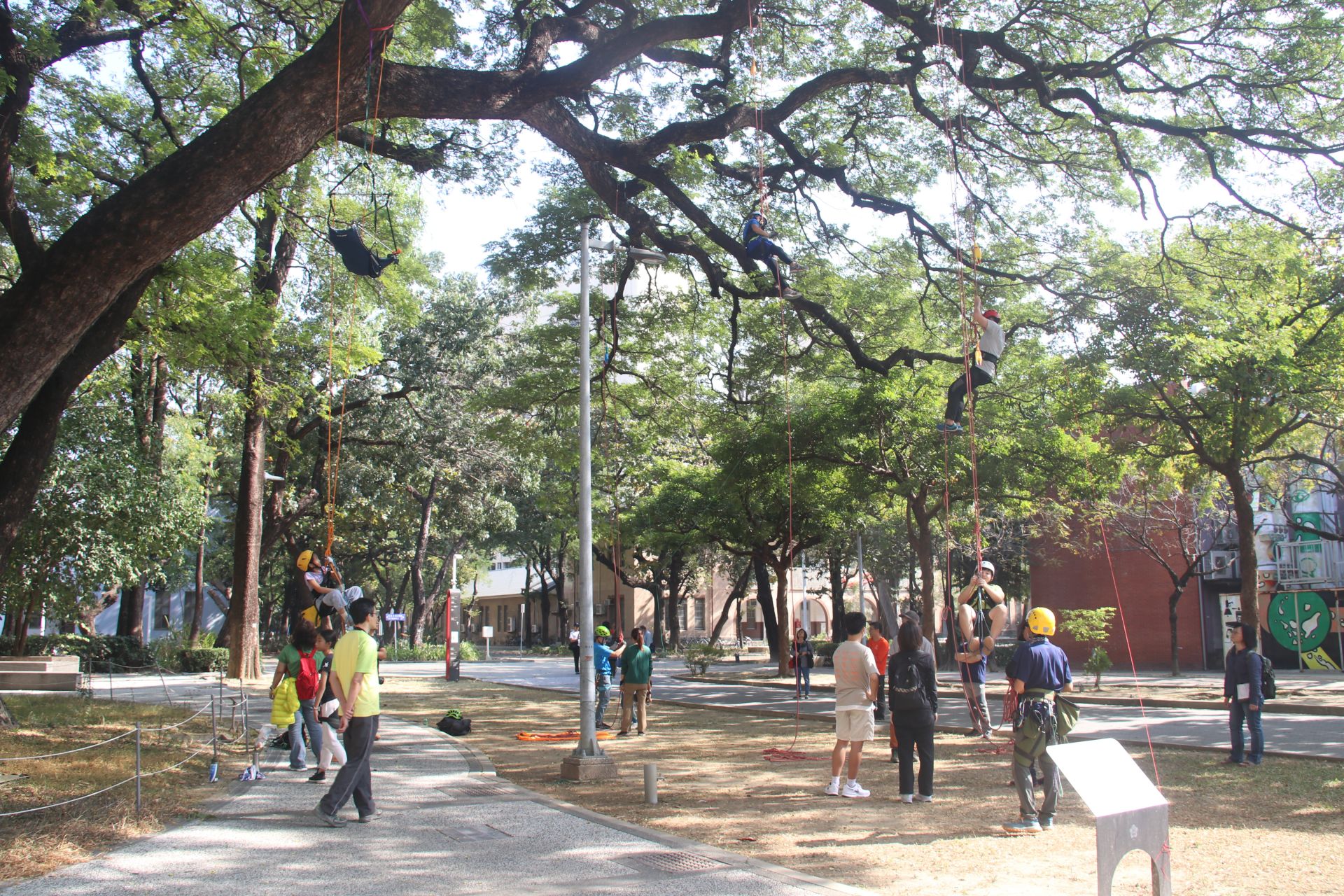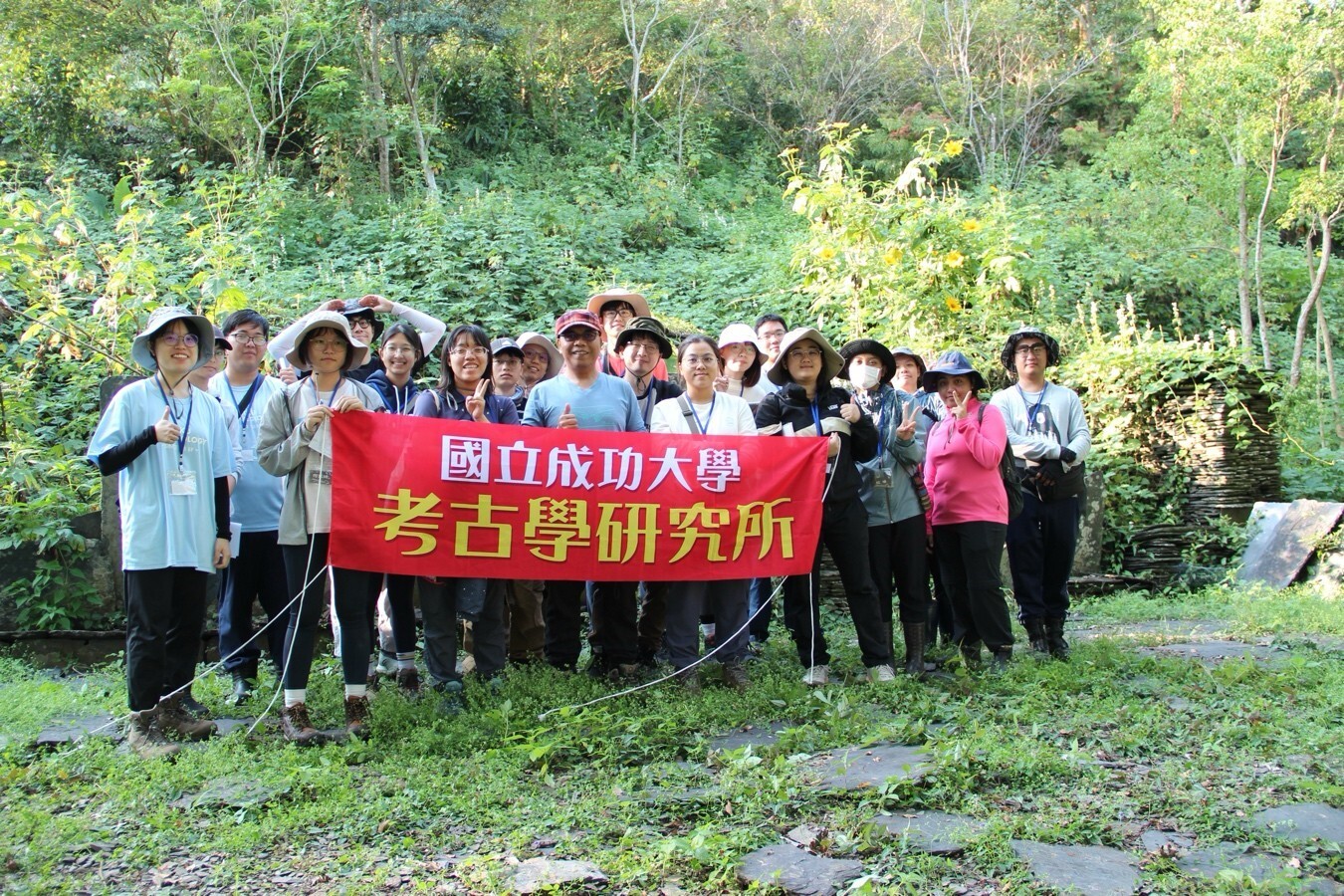Discovery of Giant Tree “Heaven sword of Da-An River” in The Project Presentation of Giant Tree Mapping Project in NCKU
The fifth presentation of the “The Taiwan champion trees - Giant Tree Mapping Project” was held in the Surveying Latitude and Longitude Hall at the Department of Geomatics. Prof. Wang stated that Taiwan has approximately 950 million trees. However, it is challenging to observe the tops of giant trees from the ground, making it difficult for researchers to measure the height of each tree. To explore the regions where giant trees grow in Taiwan, the project began in 2011 using LiDAR imaging to find the giant tree. By collaborating with professionals to identify the locations of giant trees throughout Taiwan, they found 941 trees with heights exceeding 65 meters in the deep central mountains. After field exploration, it was discovered that there are 8 trees surpassing 70 meters, and the “Heaven sword of Da-An River,” standing at 84.1 meters, is currently the tallest tree in Taiwan.
“Every year, we eagerly anticipate the holding of the results presentation, where we can gain a wealth of interesting knowledge through expert insights,” remarked Prof. Wang during his speech. He highlighted that only 2.1% of the world’s land area provides a suitable climate for the growth of giant trees. However, the majority of these areas are gradually disappearing due to logging and climate change. International journals and magazines have warned that giant trees may become extinct in the next few decades. Examining the second phase of LiDAR data from 2016 to the present, which assessed the survival rates of 941 trees over nearly a decade, it was found that among the 632 trees searched, giant trees increased by an average of about 0.3 centimeters. However, approximately 4%, or 23 trees, disappeared. The project will continue to investigate the reasons for the disappearance of giant trees and update the national giant tree distribution map, facilitating the promotion of future scientific research and ecological tourism.
Dr. Hsu, the tree-finding expert, shared the process of locating the “Heaven Sword of Da-An River” during the presentation. He discussed the team's efforts in 2018, utilizing data of LiDAR point cloud and processing it into comprehensive tree-shaped vertical profile image files. With the collaborative efforts of online communities, they deciphered the stories of giant trees exceeding 65 meters across the entire island. Dr. Hsu conveyed that through these years of dedication, the team successfully identified the Taiwan cedar giant tree “Taoshan sacred tree (桃山神木)” at a height of 79.1 meters, the “Ka’alang giant tree (卡阿郎巨木)” giant tree at approximately 82 meters, and the towering “Heaven sword of Da-An River” standing at an impressive 84.1 meters.
Dr. Hsu further elaborated on the process of locating the tallest tree in Taiwan, the “Heaven sword of Da-An River” along the Dahan River. In June of last year, using LiDAR technology on the upper reaches of the Dahan River, they selected tree No. 55214 from the initial 941 giant trees. The selected tree exhibited a height exceeding 79 meters, with a tall and slender trunk and a surrounding vegetation that appeared well-maintained. The probability of an accurate height estimate was high, suggesting that it might be the tallest tree in Taiwan. Subsequently, during the Chinese New Year holiday this year, Dr. Hsu and a photography team of nearly 20 individuals spent seven days exploring this enormous Taiwan cedar. Upon confirmation of its status as the tallest known tree in Taiwan, it was named the “heaven sword of Da-An River.”
“Exploring giant trees is a highly challenging process, yet the unknown adventure is filled with both peril and fruitful rewards,” expressed Dr. Hsu. He emphasized the difficulties in the exploration process, noting that even a minor misstep could compromise the entire measurement and documentation efforts. Navigating through rarely visited mountainous terrain involves overcoming obstacles like stream tracing and rock climbing. The mission involving accurate positioning and helicopter transportation was successfully accomplished with the assistance of the NCKU surveying team and Yuen Foong Yu Consumer Products Co., Ltd. (永豐餘消費品實業股份有限公司),. Dr. Hsu also extended gratitude to Director Hsiang-Hsiu Lee (李香秀) for capturing the Tree Seekers team’s journey in the documentary “Island of Sacred Tree.” The film, spanning a considerable duration, aims to showcase Taiwan’s mountainous environment, the changing ecology, and the challenges faced during measurement missions on the big screen.
The fifth presentation of the “The Taiwan champion trees - Giant Tree Mapping Project” featured concurrent events, including a “Parent-Child Tree Climbing Activity” and a “LiDAR Tree Measurement Workshop.” Professional tree-climbing instructors from the Forestry Research Institute guided participants in experiencing recreational tree-climbing activities, promoting canopy ecology observation research. Chih-Chieh Chang (張智傑), the technical director of JSDC (智紳數位文化事業有限公司), shared his journey of discovering old trees, initiating the “Monumental Trees in Taiwan (老樹報報、抱抱老樹)” campaign since last year. Through vivid explanations and hands-on experiences, many participating families expressed great joy. The shared images and text allowed them to virtually step into Taiwan’s mountains, feeling the grandeur and magnificence of giant trees.

The fifth presentation of the “The Taiwan champion trees - Giant Tree Mapping Project” was held in the Surveying Latitude and Longitude Hall at the Department of Geomatics.

The “Heaven sword of Da-An River, (大安溪倚天劍)” is currently the tallest tree in Taiwan.

Prof. Chi-Kuei Wang (王驥魁) from the Department of Geomatics at NCKU shared the process of LiDAR detection of giant trees.

Dr. Hsu Chia-Chun narrates the process of locating the tallest tree, the “Heaven sword of Da-An River,” in Taiwan.

The professional tree-climbing instructors from the Taiwan Forestry Research Institute led the public in experiencing leisurely tree-climbing activities.

Chih-chieh Chang, the Technical Director of JSDC, shared his journey in establishing the “Monumental Trees in Taiwan (老樹報報、抱抱老樹).”

SDG15NCKU's Life Sciences Department's USR project on microbial farming enhances agricultural sustainability.
View more
SDG15NCKU Study Challenges Classic Hypothesis on Mountain Species Extinction under Climate Warming — Published in Science
View more



















